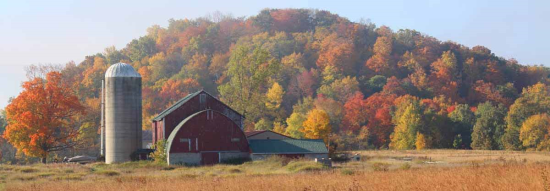Living on recreational land can be an enticing prospect for those seeking a quieter, more natural lifestyle. However, before embarking on this unique journey, there are several crucial factors to consider. In this blog, we will explore everything you need to know about living on recreational land, from understanding zoning regulations to addressing essential utilities and lifestyle considerations. Let's dive in!
Zoning Regulations:
Research Local Zoning Laws
Before purchasing recreational land with the intention of living on it, it's vital to understand the local zoning regulations. Zoning laws can significantly impact your ability to build structures, live permanently, or even set up basic amenities. Research the specific zoning requirements for your desired location to ensure you can legally reside on the land.

Residential Use vs. Recreational Use
Different jurisdictions have varying regulations regarding residential use on recreational land. Some areas strictly prohibit residential use, limiting the land to recreational activities only. Others allow residential development but impose certain restrictions. Understand the local laws and determine whether the land you're considering allows residential use or is exclusively designated for recreational purposes.
Essential Utilities:
Access to Water
Water is a fundamental necessity for any habitation. When living on recreational land, you need to determine the availability of water sources. This may include options such as wells, nearby lakes or rivers, or connecting to the municipal water supply if possible. Explore the cost, feasibility, and legal requirements associated with each water source to ensure a reliable supply for your daily needs.
Power Supply
Electricity is another crucial utility to consider. Recreational land may not have access to the electrical grid, requiring alternative solutions such as solar power, wind turbines, or generators. Evaluate the feasibility and costs of implementing these options, keeping in mind your energy requirements and environmental considerations.
Lifestyle Considerations:
Accessibility and Transportation
Living on recreational land often means being farther away from urban centers and essential services. Consider the accessibility and transportation options available in your chosen location. Determine how far you'll need to travel for groceries, medical care, and other necessities. Additionally, assess the condition of roads and the availability of public transportation in the area.
Environmental Factors
Recreational land offers a unique opportunity to live in harmony with nature. However, this also means being exposed to various environmental factors such as extreme weather conditions, wildlife encounters, and limited access to amenities. Understand the potential challenges and advantages of your chosen environment and ensure you are prepared to adapt your lifestyle accordingly.

Living on recreational land can provide a fulfilling and idyllic lifestyle for those seeking tranquility and a closer connection to nature. By researching local zoning regulations, addressing essential utilities, and considering lifestyle factors, you can make an informed decision about whether living on recreational land is the right choice for you. Remember to thoroughly evaluate all aspects and seek professional guidance when necessary. With careful planning, you can turn your dream of living on recreational land into a rewarding reality.
Until Next Time
Semper-Fi
Eric